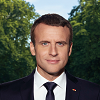Ukraine war: Putin’s failure will pave the way for China’s rise to pre-eminence in Eurasia
What had been suspected for some time has now come out into the open: China has “concerns” about Russia’s invasion of Ukraine. While this is hardly a big surprise, the source and venue of this admission is. Few would have expected Vladimir Putin himself to make such a statement – and perhaps even less so at the annual summit of the Shanghai Cooperation Organisation (SCO).
Why is it significant that Putin himself admits to China’s concerns? Given the enormous military setbacks that the Russian president has suffered over the past few weeks, losing some 8,000 sq km of previously occupied Ukrainian territory, this is a further indication that Russia can no longer pretend its actions have no impact on its closest allies.
China has benefited from discounted Russian oil and gas imports, but its main overland trade routes to Europe – via Kazakhstan and Russia – have been disrupted. Increasing inflation worldwide and the likelihood of a global recession, too, must weigh on an export-oriented economy such as China. Beijing may appreciate, in a political sense, the pressure that Moscow’s energy blackmail puts on the west, but economically it has always favoured stability in the global economy. This has been deeply upset by the Russian aggression against Ukraine, the consequences of which remain unpredictable in their depth and longevity.
Putin’s acknowledgement of such concerns, while he did not explicitly name them, also indicates his growing dependence on China and the Kremlin’s discomfort resulting from that. With western sanctions effectively cutting Russia off from desperately needed technology, China is one of the few economic powers that can realistically step into this breach and supply Russia. Similarly, with secondary sanctions having proved reasonably effective, China is one of the few markets for Russian natural resources in the long term – albeit at heavily discounted prices.
Russia’s focus on Ukraine and Putin’s choice to frame this as a civilisational struggle with the west has created opportunities for China to enhance its influence elsewhere – at Russia’s expense. The fact that President Xi Jinping can remain statesmanlike and talk about China’s readiness to work towards global stability, while Russia has to admit that China has concerns over one of the causes of the lack of stability that Xi bemoans, must be humiliating for Putin.
This is a general sign of the shifting balance of power between Russia and China. And it is nowhere more obvious than in Central Asia – and this is why the venue of Putin’s admission is also significant.
Rise of the SCO
The Putin-Xi meeting happened on the sidelines of the SCO summit in Samarkand, in the Central Asian republic of Uzbekistan. The SCO was founded in 2001 in Shanghai, China, as a military and economic cooperation organisation. Initially it brought together Kazakhstan, China, the Kyrgyz Republic, Russia, Tajikistan and Uzbekistan – that is, all of the Central Asian successor states of the former Soviet Union (except the reclusive Turkmenistan) that were wedged between the two great powers Russia and China.
Since then the organisation has grown. India and Pakistan were admitted in 2017, Iran is expected to join at the current summit, and Belarus has also submitted an application for full membership. In addition, there are two other observer states – Afghanistan and Mongolia – and six “dialogue partners”: Azerbaijan, Armenia, Cambodia, Nepal, Turkey and Sri Lanka.
The fact that the presumably mighty Russian army has suffered embarrassing defeats at the hands of a western-backed Ukraine significantly weakens Russia’s position within the organisation. Russia’s weakness is again China’s opportunity when it comes to projecting its own interests and turning the SCO into a potentially powerful tool of a China-led regional order across Eurasia.
Xi’s trip to Kazakhstan the day before he met with Putin in Samarkand is especially significant in this regard. It sent a strong signal of support to a country that has been increasingly at odds with Russia over the war in Ukraine.
Kazakhstan has suffered a decline in its once preeminent status as a transit country for Chinese goods to Europe due to western sanctions against Russia. And there have also been worries about another Russian “move” to recreate the Soviet Union in areas with a heavy ethnic Russian presence like northern Kazakhstan.
Russia’s declining influence is also obvious in the South Caucasus where Armenia and Azerbaijan – two SCO dialogue partners – are at the brink of war again. This is despite the presence of a Russian “peacekeeping force” established under a Russia-Turkey mediated agreement in 2020.
In the meantime, a longstanding border dispute between two of the Central Asian SCO members – Kyrgyzstan and Tajikistan, both traditionally heavily dependent on Russia – has also re-escalated in the past few days.
Why Xi has ‘concerns’ about Ukraine
Russia’s weakness, however, also creates problems for China. Having a less powerful ally – including in a military sense – weakens China’s position in its struggle for global leadership with the United States. Having to step in where Russia fails to provide order and stability – such as in Central Asia – is a likely drain on Chinese resources in a material sense. The disruption to the global economy caused by Moscow’s invasion further disrupts Beijing’s own COVID recovery.
Russia’s increasingly obvious defeat against democratic Ukraine also puts a dent into the Chinese narrative of the supremacy of the autocratic governance model. Putin’s adventurism in Ukraine might have been useful to Xi if it had succeeded quickly – now it is increasingly a liability.
The Russian president’s admission that China has concerns over his “special military operation” in Ukraine is perhaps the clearest sign yet that this is becoming an increasingly painful dilemma for Xi. And it’s one that he would like to see resolved before the 20th National Congress of the Chinese Communist Party is convened on October 16 in Beijing, where he will seek an unprecedented third term as leader.
Stefan Wolff, Professor of International Security, University of Birmingham
This article is republished from The Conversation under a Creative Commons license. Read the original article.



















